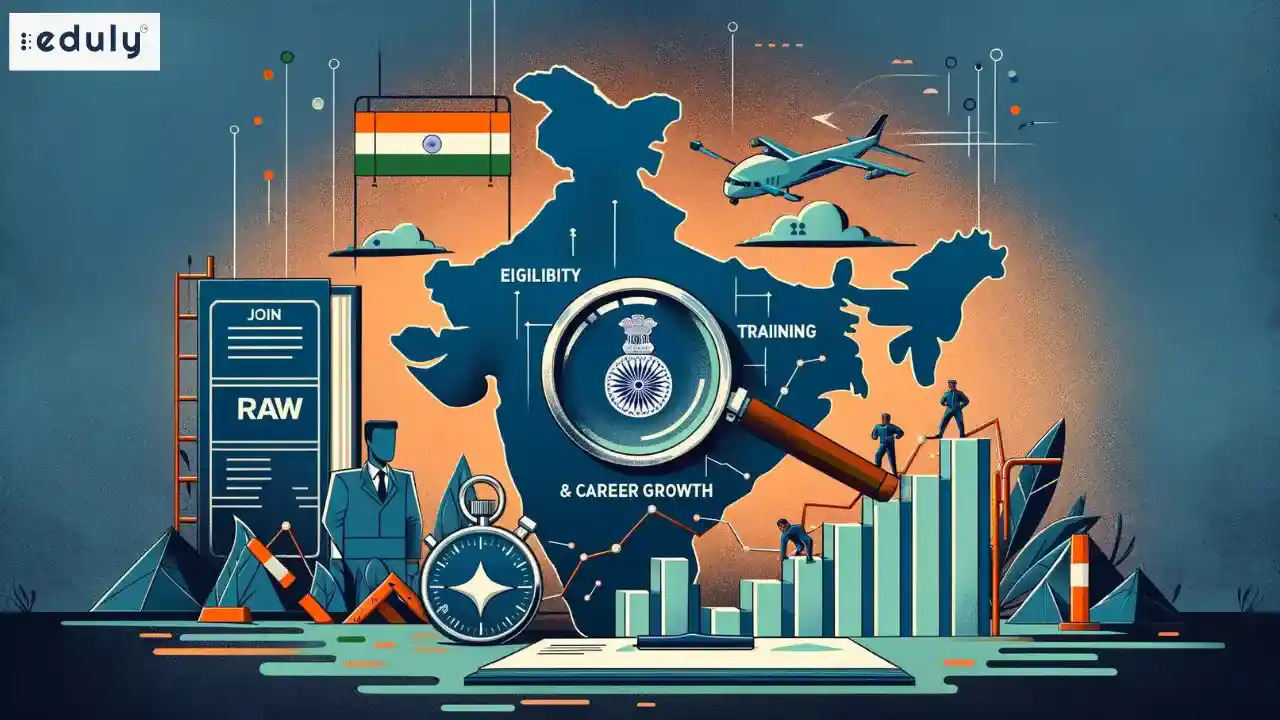Introduction
A Detective conducts requests for the benefit of various associations, like clients, policing, suppliers, and business undertakings. The obligations of an investigator might incorporate exploring instances of misrepresentation, robbery, family debates, crime, business robbery, missing people cases, and different issues of a similar sort.
Understudies who need to fill in as detectives ought to sign up for criminal science and scientific science courses since these will help them further their vocations. Concentrating on regulation is one more choice for somebody who needs to propel their profession. We’ll discuss how to turn into an analyst in India here, alongside investigator occupations, compensations, how to turn into a criminal investigator in India after finishing your twelfth grade, and the necessities for analyst work.
Understanding the Role of a Detective
Finding and conducting investigations to gather evidence for criminal cases is part of the detective’s job description. Responding to emergency calls around the clock and apprehending criminals are essential tasks for someone in the detective profession. Additionally, a detective can collect evidence from the murder site, analyze it, and utilize it in a criminal investigation. Speaking with a wide range of individuals, including the public, emergency services, and other law enforcement, is part of the work description for a detective.
Additional duties for investigators include conducting raids on people’s homes or places of business to apprehend suspects, interviewing witnesses and suspects to elicit crucial details for the case, using computers to extract the suspect’s letters, and taking notes with research details to be presented in court if needed.
1. Crime Scene Investigation
In the vocation of a criminal investigator, one starts with their work by first exploring the crime location completely. The person in question clicks pictures from all potential points covering the entire region for future reference. Visiting the crime location makes it more straightforward for the analyst to gather proof which can be valuable in additional examinations like fingerprints, weapons, criminal extras, and other comparable things.
2. Identifying Problems
In this vocation as a criminal investigator, one is liable for distinguishing issues in every single case the person in question is engaged with. Each case, for instance, a protection robbery will have a suspect and an issue joined to it. In this way, detectives initially comprehend the issue which at last makes it simpler to distinguish who is the guilty party.
3. Investigation
In a vocation as an investigator, particularly the one tackling criminal cases invests a lot of energy talking and exploring the suspects. The individual poses routine inquiries and if one finds whatever strange the person in question might make further moves likewise.
Pathways to Becoming a Detective
If you have an insatiable curiosity regarding criminal situations and constantly want to know the full story, you can pursue this curiosity as a job. The ideal job path for someone who enjoys solving crimes is becoming a detective. Here are the specifics on how to pursue a job as a detective in India or how to do so after completing your 12th-grade education.
1. Identifying Skills
It is important to determine the hard and soft talents needed to become a detective if you’re wondering how to become one in India. The following list includes some of the hard and soft abilities needed to become an Indian detective.
A detective in India needs to possess a variety of soft skills, including social skills, communication, observational abilities, patience, and attention to detail.
2. Education Qualification
Figuring out how to turn into a detective in India expects you to finish your 10+2 schooling in any stream from a supported board in India. The first and most significant stage in this cycle is to pick a conventional preparation program.
Forensic science, brain research, criminal science, and policing are among the four-year college education choices. You can seek a graduate degree whenever you have procured your single guy’s. The following is a rundown of the lone wolf’s and graduate degree necessities for criminal investigator placement tests.
Bachelor’s Programme
- Bachelor of Arts in Criminology
- Bachelor’s of Science in Forensic science
Master’s Programme
- Master‘s of Arts in Criminology and Forensic
- Master’s of Science in Forensic Science
3. Create a Portfolio
You are expected to make a portfolio to exhibit your past works or learnings to acquire the consideration of the questioner. Your portfolio should be appealing and should have every one of the undertakings that you have done during your schooling or temporary position. Making a portfolio won’t assist you with acquiring the most amazing job you could ever imagine yet will likewise assist you with remembering and monitoring every one of your undertakings and accomplishments.
4. Gain Work Experience
A vocation as an Investigator requires a great deal of useful preparation or experience. Subsequently having experience preceding an everyday occupation is everything you can manage. You can join the police power or policing to acquire reasonable involvement in researching violations and foster insightful abilities.
You can either apply to the Indian Police Administration (IPS) by passing the public authority assessments, for example, SSC-CGL, NIA, UPSC, or nearby policing or you can work for a confidential examination office or criminal investigator organization.
Required Skills and Attributes
In case a student wishes to take a job as a detective, the individual being referred to ought to have the going with criminal examiner capacities and limits. Here, in this part, we will look at how to transform into a criminal examiner in India after the twelfth.
1. Research Skill
To make a profession as a detective, one should have the option to successfully explore. A person in the analyst profession is liable for exploring and executing discoveries for tackling cases. Research is one of the main abilities one should have to be a confidential specialist. By utilizing the discoveries an investigator attempts to track down a connection and in this way, distinguish the criminal from the situation.
2. Physical Endurance
In this vocation as a detective, an individual is much of the time on their feet for extended periods while one examines cases. Actual perseverance is one of the main analyst abilities for novices. A criminal investigator might have to stroll for quite a long time while searching for a suspect and run while pursuing individuals. A criminal investigator should likewise be an area of strength for truly that the person can capture a suspect.
3. Attention to Details
In a vocation as a criminal detective, an expert should go through hours exploring a case and searching for hints to assist with settling it. The person in question is expected to be meticulous in tracking down imperative data while tackling a case. An investigator should likewise focus while talking with witnesses and conclude what data is significant.
4. Communication skills
A person in the criminal investigator occupation in India needs to converse with various individuals every day, including other cops, judges, and the general population. Relational abilities are one of the main abilities one should have to be a confidential specialist. The individual ought to know how to successfully speak with witnesses reluctant to give fundamental data. This expertise can assist in getting the information which with canning be fundamental while settling a specific case in the profession as a criminal investigator.
5. Patience
A case might require a long time to tackle, while possibly not longer, to advance, and a few cases will become perplexing in the profession of an investigator. A criminal investigator ought to have persistence while one stands by to get data. The person in question may likewise trust that numerous hours will check whether they are home and other such subtleties.
Challenges and Rewards of a Detective Career
Challenges
1. Training and Education
Contingent upon your circumstance and vocation, it can require somewhere in the range of five and eight years to turn into a detective. However this isn’t as long as it might take to procure an alumni or doctorate certificate, the preparation time might be longer than you plan to spend. On the off chance that you wouldn’t fret about the schooling and preparation time or can accelerate the interaction, you can conquer this disservice.
2. Job Environment
The work environment for criminal investigators is in great shape and clever. While working in the field, there might be circumstances where you want to focus on risks and safeguard your partners and regular citizens. The position might require numerous hours on your feet, openness to climate, and cooperation with witnesses and suspects.
3. Irregular Schedule
Not at all like different callings, criminal investigators seldom have set or steady hours. They might have to go to work, contingent upon the particulars of their work or work night shifts. During horror periods or emergencies, analysts might have to work with other police authorities to safeguard people in general and alleviate risk.
4. Mandatory Retirement
Deputation upon where the investigator works, their state or city might have a required retirement age for policing. For the individuals who truly partake in their profession or need to continue to work, this can be a burden. Assuming you’re amped up for retirement, be that as it may, compulsory retirement might be gainful for you.
Rewards
1. Job Outlook and Security
The primary advantage of turning into a criminal investigator is the professional stability in the field and position. As per the Department of Work Measurements, police and investigators can expect a 7% increment in places somewhere in the range of 2020 and 2030. This development rate is quicker than normal, and the policing might add 51,700 positions during that time. This implies that chasing after a criminal investigator position might extend to significant employment opportunity security.
2. Earning and Benefits
One more advantage of turning into an investigator is the remuneration. Experience, abilities, execution, training, and division can all influence how much an investigator procures.
3. Ability to Help Others
The occupation of a detective permits them to utilize their abilities and position to help other people. On the off chance that investigators can recognize things and capture hoodlums, they might safeguard residents from additional wrongdoing. They can likewise tackle progressing cases to give quick assistance or cold cases to furnish families with conclusions.
4. Opportunity For Growth
As a detective, exceptional execution and consistency can assist you with climbing into the police positions. Magnificent and serious investigators can endeavor to become sergeants, then, at that point, the head of police assumes they need to. The chance for development is one more advantage of turning into an investigator.
Conclusion
India’s population is very thick. The bigger the population, the bigger the crime percentage. There are a few cases wherein the suspect goes around openly without anybody getting that person. Thus, there is a rising interest in investing. Subsequently, one can pick a criminal investigator occupation. The nation needs more investigators, but a few cases remain perplexing because of the absence of skill.
Confidential bodies giving investigators are currently developing so people or organizations searching for an analyst truly do not have spots to go to yet, there is a shortage of good analysts. If an up-and-comer wishes to make a profession as an analyst in the future then there are tremendous open positions accessible in this field.
The detective pay is reliant principally on the abilities and believability of the analyst. Particularly with regards to the confidential area. In the event that one wishes to be a piece of the Focal Department of Examination then the person needs to give the essential entry test which is trailed by a three-level meeting. It is exceptionally difficult to qualify it in this way. People who are not a part of the CBI first need to demonstrate that they are great at what they do. Any other way, individuals won’t be keen on employing them.
FAQs
What qualifications are needed to become a detective in India?
To become a detective in India, you typically need a bachelor’s degree in criminal justice, law, police science, or a related field. Some agencies may also require specific training or certification in investigation techniques.
Is there any specific age requirement to become a detective?
Yes, most detective agencies or police departments require candidates to be at least 20 to 30 years old. However, this age requirement can vary depending on the specific organization.
How long does it take to become a detective?
The timeline varies widely. After obtaining the necessary education, you must gain experience as a police officer, which typically takes about 2-3 years before you can apply for a detective position. Private detectives might follow a different path, focusing on gaining investigative experience directly.
Are there private detective agencies in India?
Yes, there are several private detective agencies in India. Working for one typically requires a license, and while the qualifications can vary, having investigative skills and relevant experience is essential.




